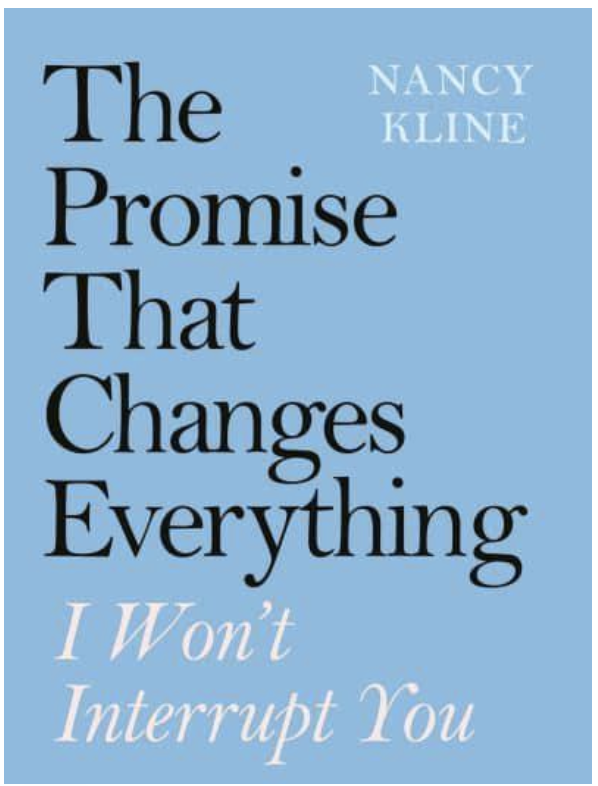I first encountered this book through a conversation with a colleague at Sarum College about pastoral supervision.I was aware of Nancy Kline and her transformative Book Time to Think. My first encounter with her thinking was through Christopher Spence with whom she produced A Hundred Principles of Love. Both Christopher and Andrew Henderson profoundly shaped my life through my encounter with the The London Light House in West London. I went onto Chair CARA which inspired my editing the volume Embracing the Chaos Theological Reflections on AIDS ( SPCK 1990).
This background is important for two reasons. First – it is easy to forget how some of the roots of our thought patterns and sources of inspiration are. We are all indebted to others and their vision and authenticity in ways that we too often fail to acknowledge. Second – this book reminded me of the importance of understanding change in our thinking environment. Being settled is dangerous. Standing fearful of change is a slow death.
This captures the essence of the exploration in these carefully crafted chapters –
‘Change where your attention is, and you change where another person’s mind is. … the bursting-into-life effect of attention is why the promise of no interruption changes everything.’
The promise of change ?
There is a deep restlessness in most of us. Perhaps the pandemic has stirred up some of our longings for something better or just different. Life is good but also complex and difficult. We are very rarely in control as we yearn for perfection ! Kline offers us the promise of change but there is a cost and challenge to how we think and act.
Here is a testimony from a leader who engaged in the changes that Kline shares
‘Understanding the promise of no interruption moved me from good listener to generator of independent thinker almost overnight. … it moved the organization from just producer of choice goods to producer of choice minds.’
What shapes your thinking environment ?
At Sarum College much of our interaction has taken place within a virtual space. Divisions between work and home have been blurred. We have missed the ‘corridor conversations’ or the catch up time over coffee. In this there has been care and attentiveness but the gift of shared physical space has been lost and needs to be recovered. It is worth noting that even within digital space we are distracted. Have you noticed the distraction of the mobile or even the colleague who continues to have one eye on the meeting and the other on the answering of their e mails ! We are all distracted to some extent.
Systemic interruptions
The most significant body of theory in this book for this reader lies in the exploration of what Kline describes as systemic interruptions to our thinking as individuals. The repercussions of conformonomics, digidistraction, polarisation and persuasion are developed with focus and energy. For those of us who externalise our thinking these sections are challenging. We also note the nature of interrogatory nature of much of public and academic discourse. What lies behind this struggle for power and agency must leave us all uncomfortable as we question or behaviour. The inter-relationship between black, white and grey is always problematic with in our heads and in the experience of those who participate in human encounter. All of our communication and the quality of relationships would attend to our own relationship to systemic interruptions.
What could you release through a promise not to interrupt?
Here are some key summary learning areas that Kline so brilliantly opens up
- Understanding independent thinking and how generative attention really helps innovative thinking.
- The 10 components of what makes a thinking environment are : attention, equality, ease, appreciation, feelings, encouragement, information, difference, incisive questions and place.
- Consider that all people come to work intending to do the best job.
- There are multiple sources of interruption.
- Understanding the promise that I won’t interrupt you and how it liberates people to think for themselves in ways they have rarely experienced in life.
- How the human mind tends to think in waves and then pauses.
And a final thought from Kline
Where is your attention? That is the groundbreaking question. Change where your attention is, and you change where another person’s mind is. Attention generates thinking. Think.
This is one of those books that is truly transformational. Thank you Nancy Kline.

